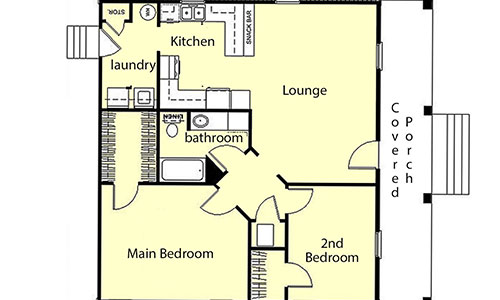The insights gained from the pilot can shape policy improvements, enhancing the scalability, inclusivity, and long-term viability of affordable housing projects within both established and evolving economies.
— New Zealand —
challenge. strategy. outcome.










Revitalizing Communities: Delivering Affordable Housing Solutions for At-Risk Groups in New Zealand
“A nation's commitment to equity is measured not by its promises, but by the homes it builds for its most vulnerable.”
— Alex Syrota, Housing and Policy Expert, GG International
Challenge
New Zealand's housing affordability crisis ranks among the most severe in the developed world. Characterized by soaring property prices and lengthy deposit saving times, the volatility of the housing market has deepened socioeconomic disparities. For at-risk and low-income communities — especially indigenous Māori — the dream of homeownership remained increasingly out of reach.
Recognizing the urgent need for intervention, the Ministry of Māori Economic Development, in collaboration with the Ministry of Housing, initiated a pilot affordable housing scheme in a semi-rural, economically challenged region. The project sought to create tangible pathways to home ownership while honoring the government’s Treaty obligations to Māori communities.
Strategy
GG International was engaged to independently review the financial and policy frameworks underpinning the pilot project. Led by housing and policy expert Shaan Stevens, the assignment focused on two strategic objectives:
- Building affordable housing through community groups on communally-owned land for low-income purchase or rental.
- Training apprentice builders from within the local communities during the construction phase to foster employment and skills development.
Our review assessed policy effectiveness against national and international benchmarks, focusing on:
- Market segmentation impacts and gaps in access to affordable housing finance.
- Long-term sustainability and the need for structured government support mechanisms.
- Alignment with the constitutional obligations to provide affordable housing to Māori communities.
- Effectiveness of financial instruments such as subsidized loans, direct housing provision, rent support, and tax incentives.
- Achievement of KPIs related to housing quality, affordability, and community builder training outcomes.
We also conducted a detailed risk analysis, highlighting the cost-quality risks of integrating housing and training programs, financial risks around community land acquisition processes, and the absence of formal tendering practices affecting sustainability.
Transformation
Our findings provided a roadmap for refining New Zealand’s approach to affordable housing delivery:
- Separating housing construction from training programs to preserve quality and control costs.
- Introducing stricter procurement and governance frameworks for community-led initiatives.
- Adopting a blended financing model combining direct provision, subsidized loans, and rental support mechanisms to broaden accessibility.
- Embedding affordable housing within wider community empowerment programs to ensure resilience and economic sustainability.